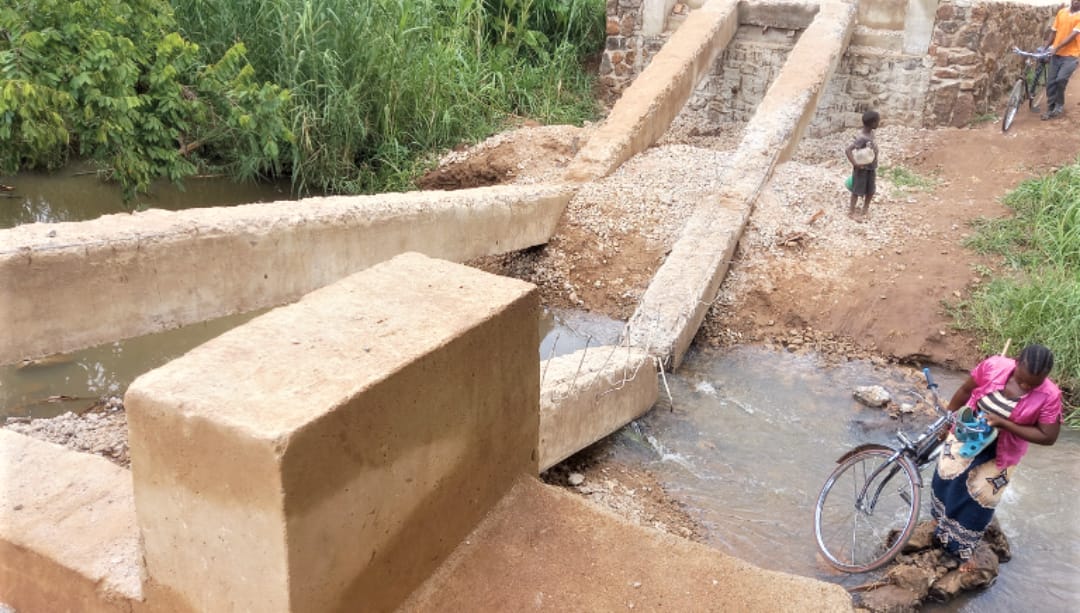Community-Led Action and Accountability Improve Infrastructure in Malawi
The K9.9 million bridge had sustained damage even before its official launch, raising questions about its construction quality.
Machinga, Malawi - In a stirring demonstration of the power of community participation, the Centre for Social Accountability and Transparency (CSAT) has helped empower local citizens to demand quality service delivery, transparent governance, and active participation in development projects, writes Howard Mlozi.
The CSAT initiative has made a significant impact on a vital infrastructure project, the Lingoni Bridge, and brought about essential change in the region.
The Lingoni bridge, located in the area of Traditional Authority (TA) Chamba in Machinga South, recently collapsed, sparking outrage among the community members.
Accusations of substandard workmanship and potential corruption charges against legislator Grant Ndecha, community leaders, and the contractor were on the rise.
The K9.9 million bridge had sustained damage even before its official launch, raising questions about its construction quality.
David Lisanje, a local resident and regular user of the bridge, expressed his concerns: "How can a bridge collapse before its launch? This shows that it was done carelessly. We suspected shortcuts and the use of insufficient materials, leading to the bridge's damage."
The contractor, George Daudi, admitted to the issue, acknowledging that he had not signed a formal contract with the Machinga District Council to construct the bridge.
Instead, he was approached for the project due to his expertise in bridge construction.
Daudi claimed to have used 245 bags of cement on the project but could not provide supporting documents for his expenses.
The lack of transparency and community involvement in such public projects was not unique to TA Chamba. In other districts, like Dowa, communities expressed similar concerns regarding poorly executed Constituency Development Fund (CDF) projects.
For example, the Chandawe bridge in Ngala area also sustained damage before its official handover.
The intervention of CSAT helped bring about change. The organisation facilitated an interface meeting between elected leaders and local authorities, opening up constructive dialogue.
Following discussions with the council officials and the MP, an agreement was reached to reconstruct the Lingoni bridge.
Chief TA Chamba, an influential local leader, emphasized the positive impact of community empowerment. "Today, we are happy that Lingoni Bridge has been reconstructed. We salute stakeholders for coming together to ensure transparency, accountability, and collaboration in various development projects," he stated.
Legislator Grant Ndecha echoed the sentiment, indicating that he instructed the contractor to redo the Lingoni bridge to provide the community with the services they deserved.
McPherson Mwakhwawa, the Machinga District Director of Planning and Development (DPD), lauded community engagement and empowerment, considering them vital for effective development implementation.
"It is in line with the decentralization policy to ensure active community participation, transparency, and accountability, which are key elements of effective service delivery," Mwakhwawa stated.
The Executive Director of CSAT, Willy Kambwandira, highlighted the organization's role in empowering communities to be part of development initiatives, emphasizing transparency and accountability.
"As Csat, we facilitate dialogues between elected leaders and community members to close gaps that breed mistrust and poor service delivery," Kambwandira explained.
To date, CSAT has empowered over 100 local leaders, monitored more than 50 projects in Dowa and Machinga districts, and provided training in accountability governance and development tracking.
The organization has made considerable strides in promoting better service delivery and community involvement in development projects.
However, the poor access to information by the citizenry in Malawi remains a challenge, characterized by bureaucratic tendencies and a culture of secrecy. This has resulted in subpar service delivery, exacerbated knowledge gaps, poverty, and disparities, particularly among the poor and vulnerable groups.
"Malawi cannot achieve the Growth and Development Strategy (MGDS) and the vision 2063 if poor people are not involved in the development process and able to demand quality service delivery," Kambwandira emphasised, underscoring the significance of good governance in combating poverty.
The World Bank's 9th edition of the Malawi Economic Monitor has highlighted the importance of prioritising policies that create productive jobs and deliver quality basic services to set Malawi on a path of prosperity, especially given the growing population.



